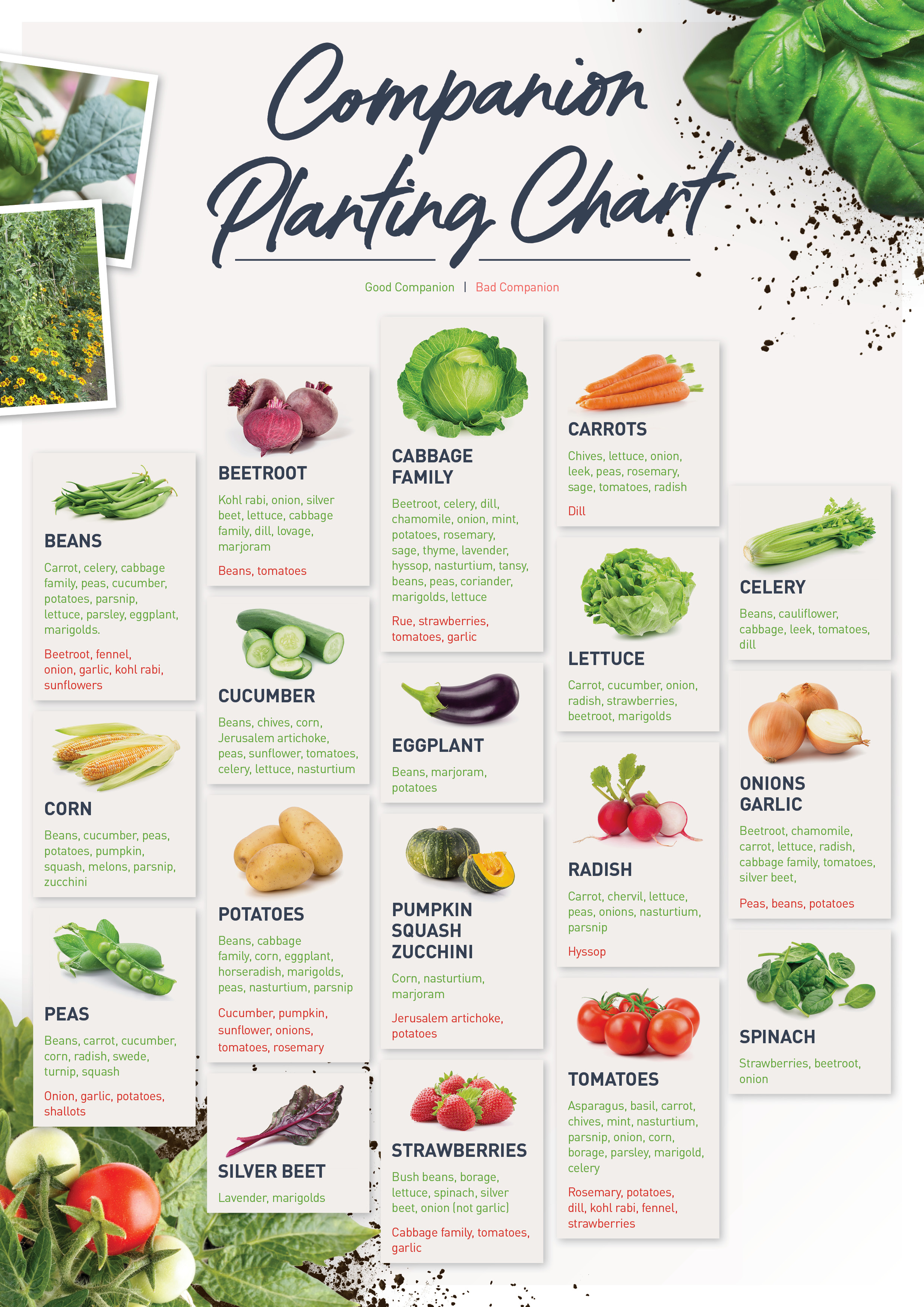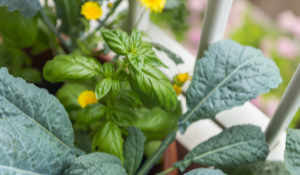Companion planting isn’t always just about ‘this goes with that’ or ‘don’t plant that with that’. It can be far more complex and is linked quite intrinsically with the idea of having a garden rich in biodiversity.
Companion planting is the careful placement of plants (especially vegetables and herbs) which have been shown to have beneficial effects on one another.
Companion planting positives.
It's all about plants benefitting from each-other within the eco-system of your backyard.
- Taller plants provide shelter from sun and wind for plants that need protection.
- Climbing plants can be trained up over taller plants to maximise production in small spaces.
- Some plants make good companions because their roots grow to different depths, so they do not compete with each other for water and nutrients.
- Plants in the legume family promote growth in nearby plants with their nitrogen fixing ability – nodules on the roots enable plants to convert atmospheric nitrogen into a form used by plants.
- The shape of some plants and their flowers can visually confuse insect pests. So, mixing up your plantings will add to the insect’s confusion.
- Other plants, especially herbs, contain strong smelling substances released by their leaves. These scents can swamp odours emitted by other plants and confuse insects seeking out a target.
- Some plants emit chemicals from their roots which can act as growth stimulants for other plants or can act negatively to impede germination of seeds.
- Flowering plants will attract pollinators and predatory insects that will help pollinate and protect your edible crops.
- Seeds are said to germinate better in the presence of sweet basil.
So, what plants like growing near each other?
Some books and charts do tend to give conflicting opinions, but here is a compiled list of good and bad companions where a general consensus seems to exist.

Looking for more great gardening info like this? Subscribe to the Better Earth Program to receive Better Earth Secrets Magazine direct to your inbox each season.
_MEB.png?width=842&height=596&name=RP_HorizontalColour(R)_MEB.png)



